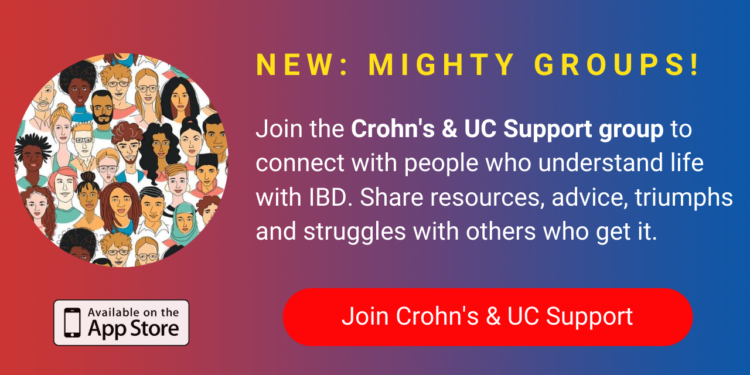On the surface, I look exactly like your average 21-year-old. I work, socialize and study like most of my peers. But there is an exception; I was diagnosed with Crohn’s disease and a severe form of irritable bowel syndrome (IBS) about a month before my 21st birthday.
When I turned 20, I welcomed the end of my teenage years with open arms. I was excited by the prospect of the fun and exciting experiences that I would most likely participate in over the next decade. But when my health started to decline and I was finally given my diagnosis, my world as I knew it completely shattered.
I had always been someone who had a small amount of social anxiety after a few bad experiences with unstable relationships, but this was exemplified in a way I could never imagine. At first, while my condition was first settling down as I began my treatment, I was completely terrified of being away from home for more than a few hours. I was still experiencing the effects of chronic fatigue that accompany my condition, but I was also still enduring a fair amount of pain and I was terrified of a flare-up. Bowel conditions are so stigmatised against that the thought of my condition suddenly reverting made me fear social judgment like never before, and my self-esteem suffered drastically. I felt gross and defective. I was young, lively and intelligent, but I felt completely repulsive and undesirable.
As my condition began to settle, thanks to a drastic lifestyle change of converting to the low-FODMAP diet and beginning medication, my self-esteem suffered in other ways. Now I could go out and socialize more, but it was completely conditional to what the nature of the event was and how my body was feeling. I had to say goodbye to eating and drinking whatever I want, and unfortunately, people noticed. Although being asked why I wasn’t drinking alcohol was an innocent enough question in its intentions, I felt humiliated in providing the actual reason as to why. It is completely irrational, but even now I panic and make an excuse like needing to drive, because I feel embarrassed to admit that my ability to consume alcohol is completely dependent on how my body is feeling at the time, and sometimes I just don’t want to risk it. On the outside, not being able to eat and drink to your hearts desire doesn’t seem like it’s much of an issue. But, in your twenties, it is extremely socially isolating when people act like it’s a buzz-kill.
These self-esteem issues often led me to overcompensate for who I am. I would put in more effort than what was required for my appearance in that context, and I completely changed how I portrayed myself on my social media accounts. After witnessing the first few people become awkward upon finding out what was wrong with my body, I was determined to be “normal” and fit in, so I made myself seem as appealing as possible. It seems comical, but at 21 you still have the majority of your adult life ahead of you, and when you feel isolated and different, you start to develop this irrational fear that people wont want to be around you. Most 2o-something-year-olds are determined to live carefree and enjoy their freedom and independence as much as possible, and when your lifestyle restrictions start to impose on what they want to do, you feel the rejection and judgement at full force.
Meeting new people and the thought of dating still terrify me, but I’m slowly learning to get over my fears. I still hold the self-deprecating view that I’m too complicated to be around because my diet is so restrictive in where I can go out and what activities I can participate in. I know it’s irrational, but I cant help but feel like I’m too much work for what I’m worth, so people just won’t bother; and this fear makes me worry even more about what my own self esteem issues will actually do when I enter into new relationships. Now I keep finding myself wishing I hadn’t have done this, or I hadn’t had said that because I don’t want to make a fool out of myself and push people away.
So, on the surface, I look like a healthy 21-year-old. I go out, I socialize, I party, I study and I work like most people I know, but everything is dependent on the meticulous effort I make every day so ensure I am able to do that. I know that sometimes it sucks that I’m not able to participate like everyone else, and that my self-esteem issues can be a buzz-kill sometimes, but there are real reasons for it.
The more accepting our society becomes about embracing people with chronic illnesses and health conditions, the happier I, and many other people in similar situations, will feel. Please think before you make comments, and be understanding of the demons people like me battle every day. I am learning to live and love myself again, but it will take time and a hell of a lot of support.
We want to hear your story. Become a Mighty contributor here.


